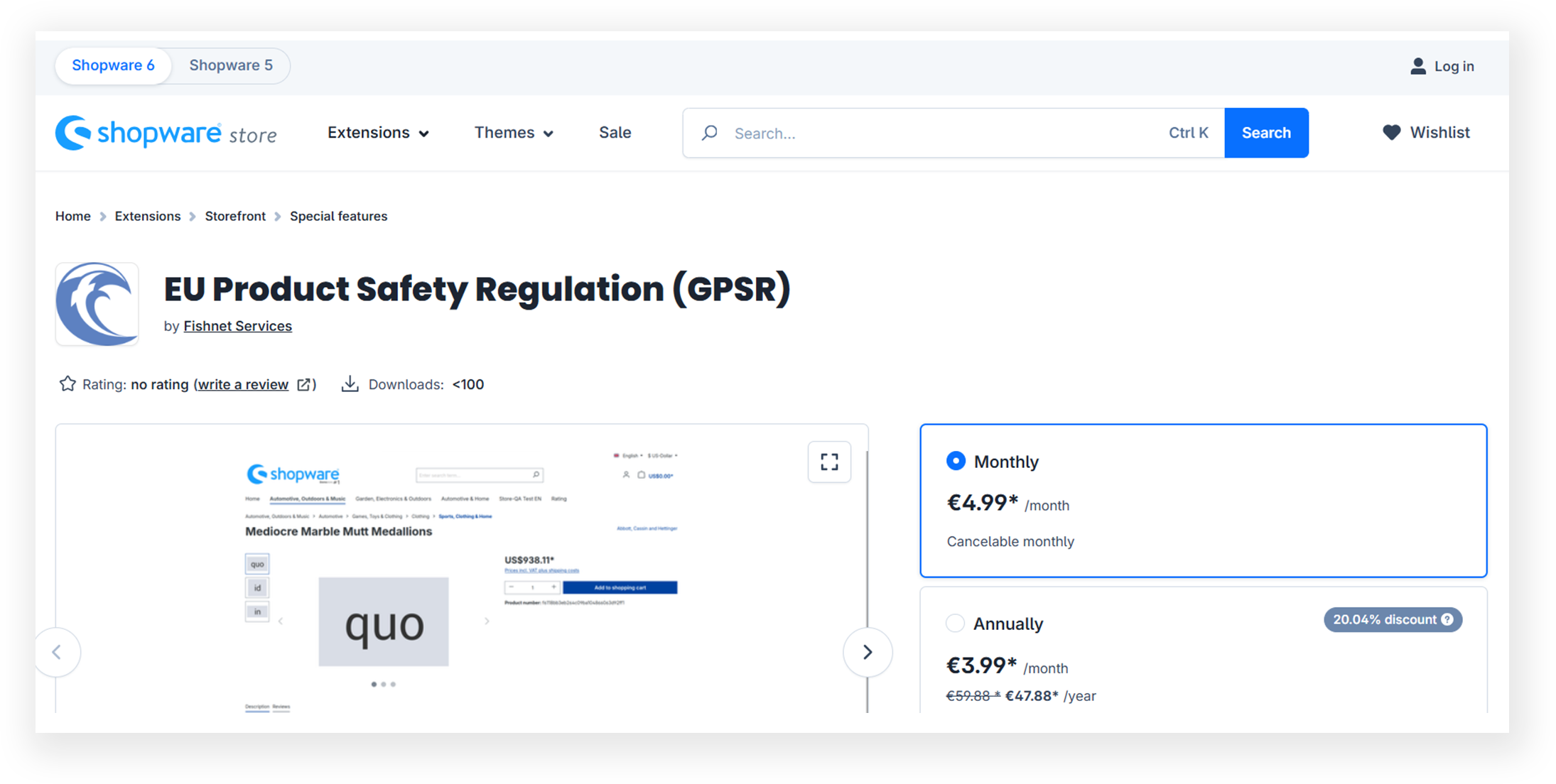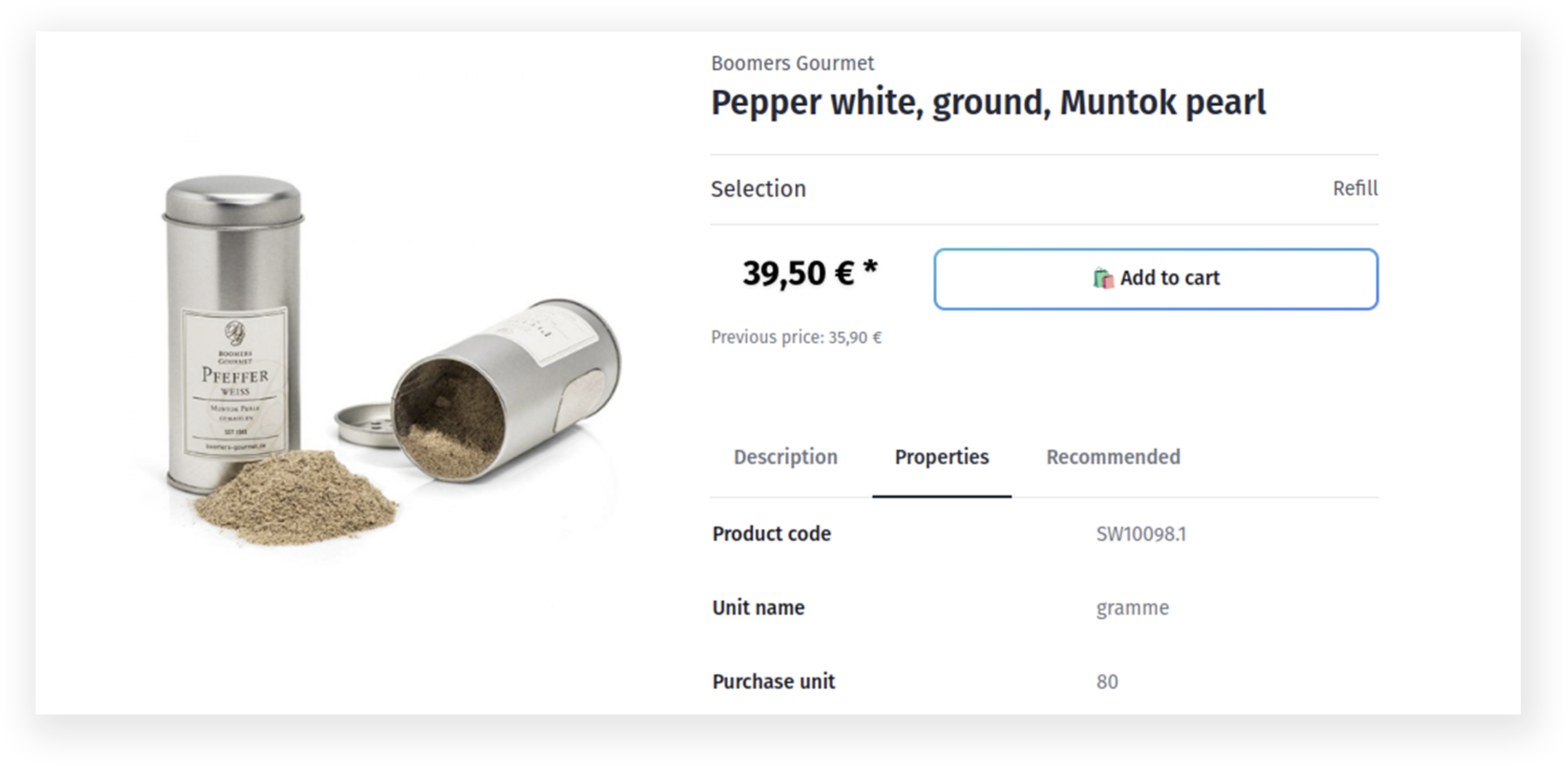The General Product Safety Regulation (GPSR) introduces a landmark shift in the European Union’s product safety landscape. It ensures robust protection for consumers while holding businesses, including online retailers, accountable for maintaining safety standards. With its enforcement set for December 13, 2024, stakeholders across the supply chain must prepare to comply with these new requirements. This guide delves into the regulation’s impact on stakeholders, compliance strategies for online retailers (especially those using Shopware), and the penalties for non-compliance.
Impact on Stakeholders
The General Product Safety Regulation (GPSR) has far-reaching implications for all stakeholders in the supply chain, from manufacturers to consumers. Here’s a detailed look at how each group is affected:
Manufacturers
Manufacturers are at the GPSR framework’s core, primarily responsible for ensuring product safety. Key impacts include:
- Pre-Market Assessments: Products must undergo rigorous safety evaluations before being introduced to the EU market. This includes testing for compliance with the latest standards and identifying potential risks in digital and physical product features.
- Obligation for Traceability: Manufacturers are now required to integrate traceability measures that provide comprehensive information on a product’s design, components, and safety testing history.
- Continuous Monitoring: Manufacturers must implement systems to monitor product performance post-market, ensuring any emerging safety issues are swiftly addressed.

Importers and Distributors
Importers and distributors act as intermediaries, ensuring that only compliant products enter and circulate in the EU market. They now face:
- Verification of Compliance: Importers must verify that manufacturers have adhered to all GPSR standards, including technical documentation and product safety testing.
- Accountability for Market Surveillance: Distributors must assist authorities in conducting checks and recalls, and maintaining records to track product origin and distribution channels.
- Joint Liability: If a manufacturer cannot be identified or fails to address safety concerns, importers and distributors may share legal and financial liability.
Online Retailers
E-commerce platforms and online retailers, such as those operating on Shopware, are significantly impacted as the GPSR extends safety accountability to digital marketplaces:
- Ensuring Safe Listings: Online retailers are required to ensure that all products listed on their platforms comply with GPSR safety standards, including correct labeling, accurate descriptions, and proper documentation.
- Liability for Third-Party Products: Retailers must actively monitor and remove listings for non-compliant or unsafe products, even if sold by third-party sellers.
- Streamlined Recall Processes: E-commerce platforms must facilitate efficient recalls by notifying affected customers and providing a mechanism for returns or repairs.
Consumers
For consumers, the GPSR represents a new era of protection and transparency:
- Access to Product Information: With the introduction of digital product passports, consumers will have detailed insights into a product’s safety credentials, manufacturing processes, and origin.
- Faster Safety Resolutions: The GPSR enforces quicker response times for addressing safety issues, ensuring faster recalls and resolutions.
- Improved Market Confidence: With stricter enforcement and greater oversight, consumers can trust the safety and quality of products in the EU market.
Market Surveillance Authorities
Authorities play a critical role in enforcing the GPSR. The regulation empowers them to:
- Conduct Proactive Inspections: They are now equipped with greater authority to inspect and test products proactively, both online and offline.
- Streamline Cross-Border Actions: The GPSR promotes collaboration between EU member states, allowing authorities to address safety concerns consistently across the region.
- Issue Stricter Penalties: Authorities can impose severe fines, product bans, or even legal action against businesses that fail to comply.
The General Product Safety Regulation places collective accountability across the supply chain, emphasizing proactive measures, traceability, and collaboration to ensure product safety. Each stakeholder must adapt their processes to align with these requirements, fostering a safer marketplace for all.
How to Comply with GPSR?
Compliance requires businesses to focus on the following key areas:
- Identify all potential risks associated with the product lifecycle and regularly update assessments to align with new regulations or market requirements.
- Compile product specifications, safety test results, and conformity assessments in a detailed technical file readily accessible for regulatory checks.
- Ensure products have digital passports with essential details like origin, safety certifications, and handling instructions to enhance transparency and traceability.
- Label all products with identifiable information such as manufacturer details, origin, and batch numbers, and maintain detailed records of their supply chain movements.
- Ensure all products meet GPSR-compliant labeling standards, including warnings, instructions, and regulatory marks like CE markings where applicable.
- Develop protocols to quickly identify safety issues, notify affected customers, and initiate recalls in collaboration with market authorities.
- Train your staff and supply chain partners on GPSR requirements to ensure everyone adheres to compliance standards effectively.
- Ensure that your e-commerce listings comply with GPSR standards by partnering with platforms that support compliance tools for risk assessment and traceability.
Penalties for Non-Compliance
Failing to comply with the GPSR can result in severe consequences:
- Fines: Significant financial penalties based on the severity of non-compliance.
- Product Recalls: Unsafe products may be removed from the market at the business’s expense.
- Legal Actions: Non-compliance could lead to lawsuits, criminal charges, and damage to the company’s reputation.
- Market Ban: Persistent violations may lead to exclusion from the EU market.
Implementing GPSR Requirements for Online Retailers with Shopware
Shopware provides robust features to help online retailers comply with the General Product Safety Regulation (GPSR). Here’s a breakdown of how these tools can streamline compliance efforts:
Essential Characteristics
-
What It Does:
This feature allows retailers to display mandatory product information directly on the storefront.
-
How to Use:
- Navigate to Settings > Shop > Essential Characteristics to access the feature.
- Create templates that include critical data fields such as safety instructions, product origin, and material composition.
- Assign the created templates to products under the Essential Characteristics section in product details.
-
Outcome:
The specified information is displayed at the product level, ensuring customers have easy access to essential details during checkout.
Custom Fields
Shopware’s upcoming feature of custom fields will allow merchants to seamlessly integrate custom fields into CMS layouts, providing a flexible and efficient solution for labeling products in compliance with GPSR. This functionality will be included in the next release, set for early December.
-
Purpose:
Custom fields allow adding detailed, product-specific information such as manufacturing dates, safety warnings, or certifications.
-
How It Works:
- Create custom field sets via Settings > System > Custom Fields, or use the API for configuration.
- Define the type of data (e.g., text, number) and assign it to entities like products or manufacturers.
- The fields can be integrated into CMS layouts to populate product pages with the relevant details automatically.
-
Key Benefits:
- Any changes to a custom field (e.g., updating manufacturing dates) are reflected across all connected layouts instantly.
- Reduces manual effort and errors while ensuring consistent product labeling across the storefront.
Why Shopware’s Tools are Beneficial?
By leveraging Essential Characteristics and Custom Fields, retailers can:
- Ensure all critical product information is readily available for customers.
- Meet GPSR compliance standards with minimal effort and maximum accuracy.
- Enhance customer trust by providing transparent and reliable product details.

These features help retailers not only adhere to regulatory requirements but also improve the shopping experience for their customers.
GPSR Compliance Plugins for Shopware
In addition to Shopware’s built-in features like Essential Characteristics and Custom Fields, merchants can further enhance their compliance with GPSR through specialized third-party plugins. These tools provide additional capabilities to simplify the implementation of GPSR requirements.
1. EU Product Safety Regulation (GPSR) Plugin
Key Features:
-
- Display manufacturer data directly beneath the product description.
- No additional clicks are required, meeting legal requirements.
- Input information once per manufacturer, not for each product.
This plugin is particularly helpful for merchants looking for a quick, ready-to-use solution for labeling and product traceability.

2. GPSR Product Safety Regulation Professional Plugin
Developed by ACRIS E-Commerce, this professional-grade plugin offers advanced tools for managing GPSR compliance.
-
Key Features:
- Additional manufacturer information can be added directly to the product, by the manufacturer, or using dynamic product groups and rules.
- The responsible person for the EU can be specified on the product, at the manufacturer, or through dynamic product groups and rules.
- Warnings, safety instructions, and important information can be provided directly on the product or via dynamic product groups and rules.
This plugin is ideal for larger businesses or those managing extensive product catalogs.
Benefits of Using Plugins
Both plugins enhance your compliance strategy by automating critical tasks, reducing manual errors, and ensuring seamless alignment with GPSR requirements. They are particularly useful for merchants who want to supplement Shopware’s default settings with specialized tools for data management and presentation.
By combining Shopware’s built-in features with these plugins, retailers can achieve a comprehensive and efficient approach to GPSR compliance, ensuring they meet regulatory demands while providing customers with reliable product information.
For more details, explore the plugins at Fishnet Services GPSR Plugin and ACRIS GPSR Plugin.
Conclusion
The General Product Safety Regulation (GPSR) is a pivotal regulation designed to protect consumers in the EU’s rapidly evolving market. While compliance can be challenging, tools like Shopware offer practical solutions for online retailers to meet these requirements efficiently. Stakeholders across the supply chain should act swiftly to ensure compliance, avoid penalties, and enhance consumer trust in their products.
Preparing early is the key to navigating the GPSR effectively, ensuring not just legal compliance but also a competitive advantage in an increasingly safety-conscious marketplace.,
Bhavya Shah
Bhavya Shah is a Business Analyst at iCreative Technologies. He specializes in the eCommerce consulting for all business domains. He is working hand-in-hand with developers and clients to produce requirements and specifications that accurately reflect business needs and are technologically achievable.





